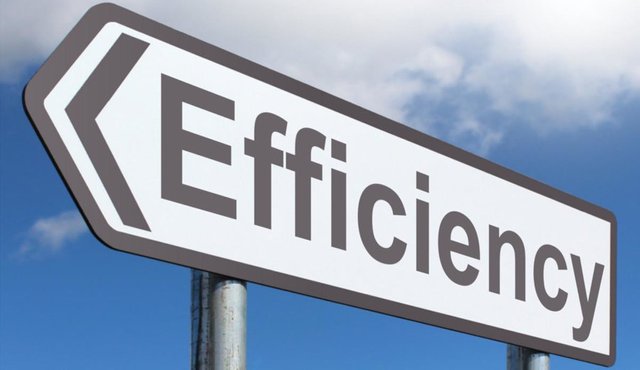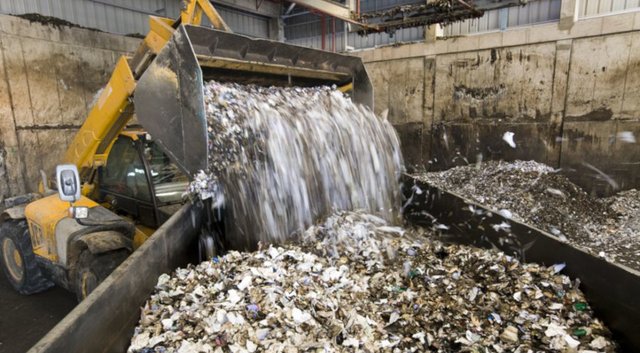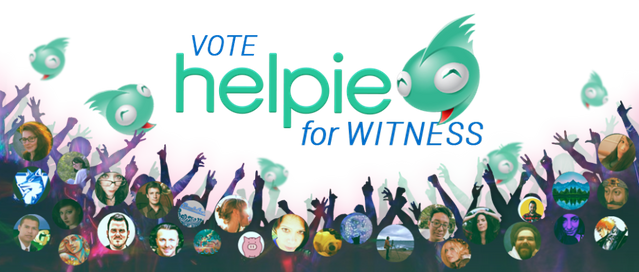Cost Efficiency Vs True Efficiency
What is efficient? Is it to produce an amount of goods using as little resources as possible in the most technically effective way? This sounds about right, doesn't it? Unfortunately it's not right, not in a world in which cost efficiency has become synonymous with true efficiency.

source: Picpedia
Efficiency is the (often measurable) ability to avoid wasting materials, energy, efforts, money, and time in doing something or in producing a desired result. In a more general sense, it is the ability to do things well, successfully, and without waste.
source: Wikipedia
The ability to do things well, successfully and without waste. Are we an efficient species? Of course not. It's not that we lack the intelligence or even the basic will to handle nature's resources in an efficient manner; I believe most everyone will agree that we need to reduce waste and take better care of our natural environment. It's just that the economy as we know it won't allow for true efficiency, only for cost efficiency, which is almost the opposite. Notice that in the Wikipedia definition everything mentioned is real, except for one thing: money. Money is an agreement, and it's supposed to be a trustworthy agreement, but all my crypto brothers and sisters know this is not the case; it's a vapid agreement, or an "inflated promise" if you want to be smart about it, not to be trusted because our dollars will be worth less tomorrow, for sure.
Just in general terms, the birds-eye view so to speak; an overarching economy that constantly accentuates, even demands the minimizing of costs, and the maximizing of output, will always lead to gross imbalances on both sides, and these imbalances are easily predicted, especially because we've seen them so often in our history. Certainly on the input side, the costs, things have been crystal clear throughout history. That's because labor is counted as cost, labor is a resource. That's why labor always has been and always will be under-payed, with extremes like slavery and wage-slavery. On the output side things are also clear: we overproduce like there's no tomorrow. The combination of in- and output explains the gross material inequality we've always experienced before the system temporarily breaks down again. The owners of the input get the lion's share of the output. This works the same here and now, as it did right before the fall of the Roman empire, or before the French revolution; it's the same systemic forces that are responsible now, as were back then.
I've given this example before, but I'll give it again because it illustrates this point so beautifully. One of my best friends used to work at a meat factory. He lived across the street from me here in the Netherlands, but every morning a bus picked him up to drive him and his colleagues to Denmark, crossing two international borders (we live close to the German border, all the way up north), to do his meat cutting work. The pigs and cows came from The Netherlands and Germany; they were skinned and cut in half before being transported to Denmark. So the workers and their work met up every day in Denmark, and after they processed the meat, the portions were then transported to Poland I believe it was, where the meat was packaged. All that, to eventually transport the packaged meat back to supermarkets in The Netherlands, Denmark, Germany and a few other western European countries.

source: Wikipedia
That's everything but efficient. But this way of doing things does wonders for the economy of not just one, but several countries. Jobs are created, yes, but they reside on the cost side of the growth-equation. It's all the businesses and industries involved, as well as the GDP of said countries that are the real winners here. And because GDP has become some magical "health thermometer" in the eye of homo economicus, all involved countries know they're doing the cost efficient thing. In the perspective of a nation's economy, traffic accidents are a good thing; just think of all the jobs, institutions, businesses and industries involved with every accident. For a growing economy it is efficient to produce things that need regular replacement. Waste is just another industry to be conquered. And at the same time all the overproduced stuff needs to be destroyed to maintain scarcity, because if it's not scarce enough, prices will go down.
Our economy is a model that was born when we left real scarcity behind us, while maintaining the notion of scarcity for the system to work at all. This is why we have the paradoxical situation of many empty buildings right next to a growing number of homeless people, the "unfortunate" situation of hunger while producing enough food to feed the world twice over, the ever growing material inequality and the loss of democracy to the plutocracy. Growth is not the answer, it never was. Efficiency is the answer, "the ability to do things well, successfully and without waste," but unfortunately that's not what the economy dictates. Einstein said "imagination is more important than knowledge," and we need imagination now more than ever if we want to break free from the growth-mindset. He also said: "We cannot solve our problems with the same thinking we used to create them." I think he was a smart man. We should take heed of his words...
Thanks so much for visiting my blog and reading my posts dear reader, I appreciate that a lot :-) If you like my content, please consider leaving a comment, upvote or resteem. I'll be back here tomorrow and sincerely hope you'll join me. Until then, keep steeming!

Recent articles you might be interested in:
| Latest article >>>>>>>>>>> | Resist The Panopticon |
|---|---|
| Life Eternal | Bound By Myth |
| Becoming Evil | Wisdom In Humor |
| The Big Picture | Man Exploiting Man |

Thanks for stopping by and reading. If you really liked this content, if you disagree (or if you do agree), please leave a comment. Of course, upvotes, follows, resteems are all greatly appreciated, but nothing brings me and you more growth than sharing our ideas. It's what Steemit is made for!


Just for Full Disclosure, I'm invested in these crypto-currencies:
Bitcoin | Litecoin | EOS | OmiseGo | FunFair | KIN | Pillar | DENT | Polymath | XDCE | 0x | Decred | Ethereum | Carmel | XYO

@helpie is a WITNESS now! So please help @helpie help you by voting for us here!

The same people who fucked this all up, now push people in their own agendas.
People need to break free, as you said.
Instead they now ask their rulers via agendas for more / better rules.
Yea good luck
Posted using Partiko Android
Yes it is crazy that cost efficiency is also not tied in with actual efficiency.
Posted using Partiko Android
Curated for #informationwar (by @wakeupnd)
Ways you can help the @informationwar!
Congratulations @zyx066! You have completed the following achievement on the Steem blockchain and have been rewarded with new badge(s) :
You can view your badges on your Steem Board and compare to others on the Steem Ranking
If you no longer want to receive notifications, reply to this comment with the word
STOPTo support your work, I also upvoted your post!
Vote for @Steemitboard as a witness to get one more award and increased upvotes!
Hi @zyx066!
Your post was upvoted by @steem-ua, new Steem dApp, using UserAuthority for algorithmic post curation!
Your UA account score is currently 3.485 which ranks you at #6207 across all Steem accounts.
Your rank has dropped 7 places in the last three days (old rank 6200).
In our last Algorithmic Curation Round, consisting of 144 contributions, your post is ranked at #40.
Evaluation of your UA score:
Feel free to join our @steem-ua Discord server
Very instructive discussion, for which I'm grateful. I learned something I did not expect, which is that The Netherlands are not Denmark. I have even lived in Europe for a year without learning that fact.
Something I expect will continue, and will soon exert increased change in the matters you discuss here is decentralization. The particular business you mention may even be one of the first impacted by decentralization, as aquaponics is able to provide much more food to consumers and reduce inefficiency that is caused by centralization of food production.
Decentralization is freedom, and extremely efficient in comparison to extant business models. That efficiency is much of why it's more profitable to those that adopt it, even when means of production, resources, and labor is more expensive on a per unit basis than centralized mechanisms. As development proceeds, decentralized means of production will only grow more profitable, and parasitism via centralization becomes ever more of a drag on prosperity.
Thanks!